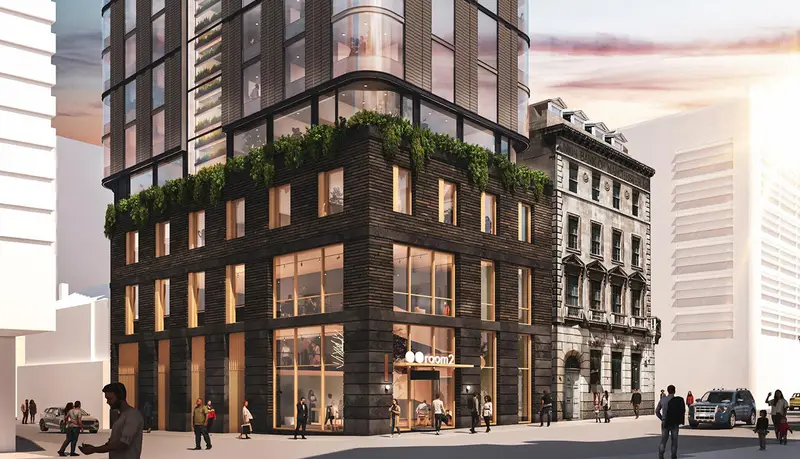A prominent developer is set to proceed with an ambitious ‘hometel’ project on a vacant site in Piccadilly, Manchester.
This project aims to revitalise the long-abandoned Union Bank building, unveiling new possibilities for modern accommodation in the area.
Introduction
A prominent developer is set to proceed with an ambitious ‘hometel’ project on a vacant site in Piccadilly, Manchester.
This project aims to revitalise the long-abandoned Union Bank building, unveiling new possibilities for modern accommodation in the area.
An Ambitious Proposal
A planning application for a 34-storey hotel apartment scheme has been submitted by a niche hotel operator. The proposed scheme aims to redevelop the Union Bank building on Piccadilly, bringing it back into use after years of neglect.
City council officers have recommended the approval of the plans submitted by the developer for the hotel operator, marking a significant step forward for the project.
Historical Context and Previous Attempts
The Union Bank of Manchester building has remained boarded up and unoccupied since 2006. Previously celebrated by architectural critics, it has fallen into disrepair over the years.
Previous planning permissions for the site were granted in 2007, 2013, and 2019, but all have expired without the project coming to fruition.
The current developer hopes not only to succeed this time but also to surpass previous plans by increasing the height to 34 storeys.
Restoration and Design Plans
Plans include the restoration of the original ornate bank ceiling, which is currently hidden by a suspended ceiling. Non-original features will be removed, and the stained glass windows relocated to be featured in the ground floor bar.
Architectural writer Jonathan Schofield described the Union Bank building as ‘one of the best buildings on Piccadilly,’ although it is currently in a dilapidated state.
However, the design proposals have not been received without criticism. Six objections raised concerns about the building being ‘obnoxious,’ ‘oppressive,’ and ‘out of scale.’
Expansion and Sustainability Goals
The operator, part of a broader group, already has sites in London, Southampton, and Belfast. This Manchester site represents their first venture into northern England.
The developer purchased the site in 2022 with the goal of creating a net zero carbon development. This would reportedly be the UK’s first net zero tower, reflecting a strong commitment to sustainability.
The London site owned by the operator features electric-only infrastructure, blue and green spaces, and a herb garden, setting a precedent for what might be expected in Manchester.
Potential Impact on the Local Area
Located next to prominent sites such as the Waldorf pub and Malmaison Hotel, the new project sits within a notable commercial area.
Despite some criticisms of the design, the development promises to bring increased foot traffic and business to the district, potentially revitalising the local economy.
Additionally, the incorporation of unique features like a herb garden and sustainable technologies could serve as a model for future developments in the area.
Conclusion
The proposed ‘hometel’ development on the vacant Piccadilly site represents a significant step towards revitalising a derelict area. With plans for sustainable infrastructure and preservation of historical elements, the project aims to bring new life to the Union Bank building.
While there are concerns about the design and scale, the broader vision offers a promising opportunity for growth and modernisation.
The proposed ‘hometel’ development on the vacant Piccadilly site represents a significant step towards revitalising a derelict area. With plans for sustainable infrastructure and preservation of historical elements, the project aims to bring new life to the Union Bank building.
While there are concerns about the design and scale, the broader vision offers a promising opportunity for growth and modernisation.


